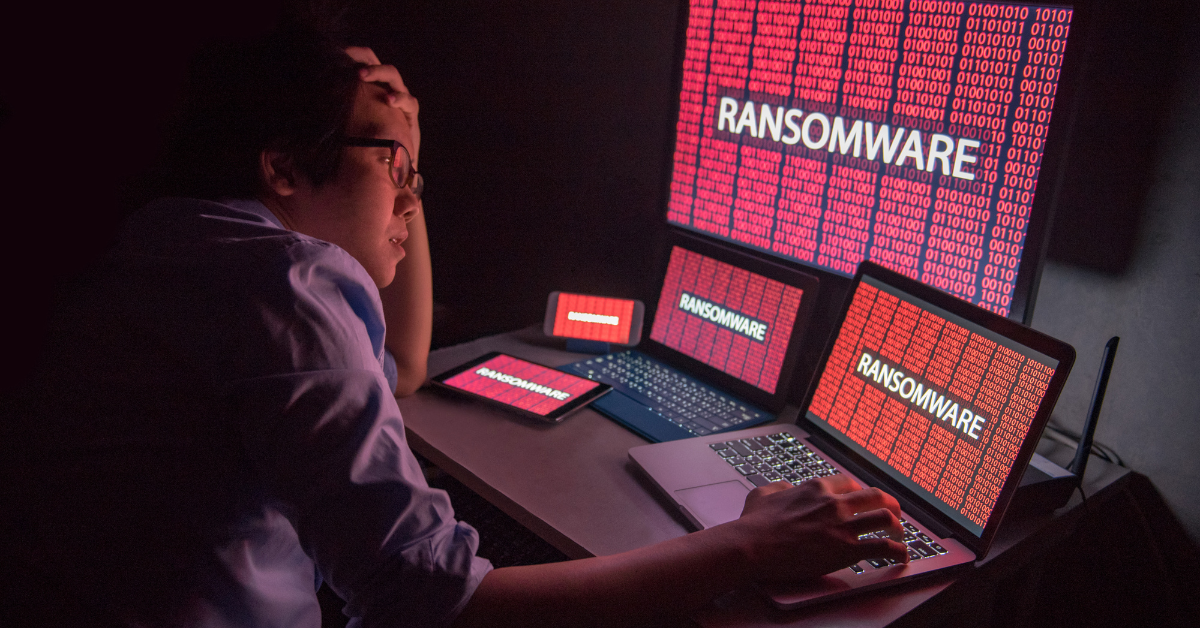Cyber security is becoming more sophisticated by the day – making threats a round-the-clock issue for Ireland’s small and midsized enterprises (SMEs). The stakes have never been higher, as a single breach can cause major disruption, financial loss, and reputational damage.
Let’s explore the cyber threats targeting Irish businesses, the best methods to keep your business protected, and how PAQ IT can ensure your long-term success with 24/7 protection.
What Threats Are Knocking At Your Digital Door?
Cybercriminals are getting more organised, better equipped, and more persistent than ever. For Irish SMEs, this means new threats continue to emerge that pose significant danger to their operations.
In fact, recent research reveals that 90% of Irish businesses have experienced some form of cyber-attack in the last five years – a stark reminder of just how many businesses experience threats.
Here are the main cyber threats SMEs in Ireland need to watch out for:
- Phishing attacks: Carefully crafted emails designed to trick employees into revealing passwords, downloading malware, or transferring funds. These scams are becoming increasingly convincing and harder to spot due to AI and natural language processing.
- Ransomware: Malicious software that locks access to your data or systems until a ransom is paid. Ransomware can halt operations and cause serious financial and reputational damage.
- Business email compromise: A targeted attack where a criminal impersonates a trusted contact, such as a supplier or manager, to request money transfers or sensitive data.
- Insider threats: Whether intentional or accidental, employees can pose a significant risk. A lost laptop, reused password, or misdirected email can all result in a data breach.
- Unsecured remote access: With many businesses now supporting hybrid or remote work, poorly secured remote access points can be exploited by attackers to gain entry to internal systems.
- Outdated software and systems: Failing to apply updates and patches leaves known vulnerabilities open to exploitation. Cybercriminals often scan for these weaknesses and act quickly.
Cyber Threats Are Constant, and Irish SMEs Are in the Crosshairs
Cyber threats can strike at any moment, regardless of the time of day or night. Irish SMEs are facing a growing challenge due to their lack of in-house resources to monitor systems around the clock. This makes them increasingly vulnerable to attacks that slip through unnoticed.
Here’s why SMEs across Ireland are increasingly being targeted by cybercriminals:
- Limited internal IT capacity: Many SMEs operate with small teams or outsourced support, which can create gaps in visibility and incident response outside standard working hours. MT Services’ recent article provides insight into how SMEs can effectively overcome gaps in IT skills.
- Valuable data, lower defences: Even smaller businesses hold sensitive customer, financial, or operational data. Cybercriminals often see them as easier targets with valuable information.
- Email remains a weak point: Phishing emails are designed to trick staff into clicking links, downloading files, or sharing credentials. Without strong user awareness and email filtering, these attacks can lead to serious breaches.
- Ransomware is easy to launch: Cybercriminals often automate attacks or buy ready-made ransomware kits. This makes it simple to target multiple businesses at once, looking for those with the weakest security posture.
- Attacks are increasingly stealthy: Many modern threats are designed to go undetected, quietly spreading across networks before triggering visible damage. Without 24/7 monitoring, they may not be spotted until it’s too late.
- Downtime is expensive: Whether it’s a lost day of productivity or reputational fallout, a cyber incident can hit hard. And if it happens overnight or during a weekend, recovery can be delayed.
Why 24/7 Protection Matters
It’s not enough to secure your systems during business hours. Your SME needs a robust IT strategy that includes continuous protection:
- Attacks happen anytime: evenings, weekends, holidays, and delays in detection can be catastrophic.
- Faster response reduces impact: round-the-clock monitoring allows threats to be triaged, contained, and remediated instantly.
- Regulatory & contractual requirements: GDPR instantly demands incident response, and reputational trust depends on swift action.
- Peace of mind: knowing that you’re defended at all times allows you to concentrate on business growth.
PAQ IT’s Layered, Always-On Defence Approach
At PAQ IT, we deploy a defence‑in‑depth system tailored to Irish SMEs, combining three vital layers. Together, these layers form an always-on shield against phishing attacks, ransomware, cloud threats, and everything in between:
- Email filtering: We block phishing and malware at the gateway using advanced filters and AI. Pre‑emptive quarantining of suspicious attachments and links protects your team before they hit inboxes.
- Endpoint protection: Every device is secured with continuous scanning, automatic patching, and real-time threat detection. With Endpoint Detection & Response (EDR), we rapidly isolate threats and stop lateral movement.
- Real‑time monitoring: Our Security Operations Centre (SOC) works around the clock, reviewing alerts and investigating anomalies instantly. Through behavioural analytics, we catch even the stealthiest attacks, including zero-days and supply chain vulnerabilities.
Contact Us Today
Cyber threats never clock off, and neither should your defences. For Irish SMEs, that means moving beyond reactive, daytime-only security. With PAQ IT’s 24/7 protection you’re safeguarded against the threats that matter most, including email filtering, endpoint security, and real-time monitoring.
Contact us today to explore how our local, layered approach keeps your business protected and lets you focus on growth.


